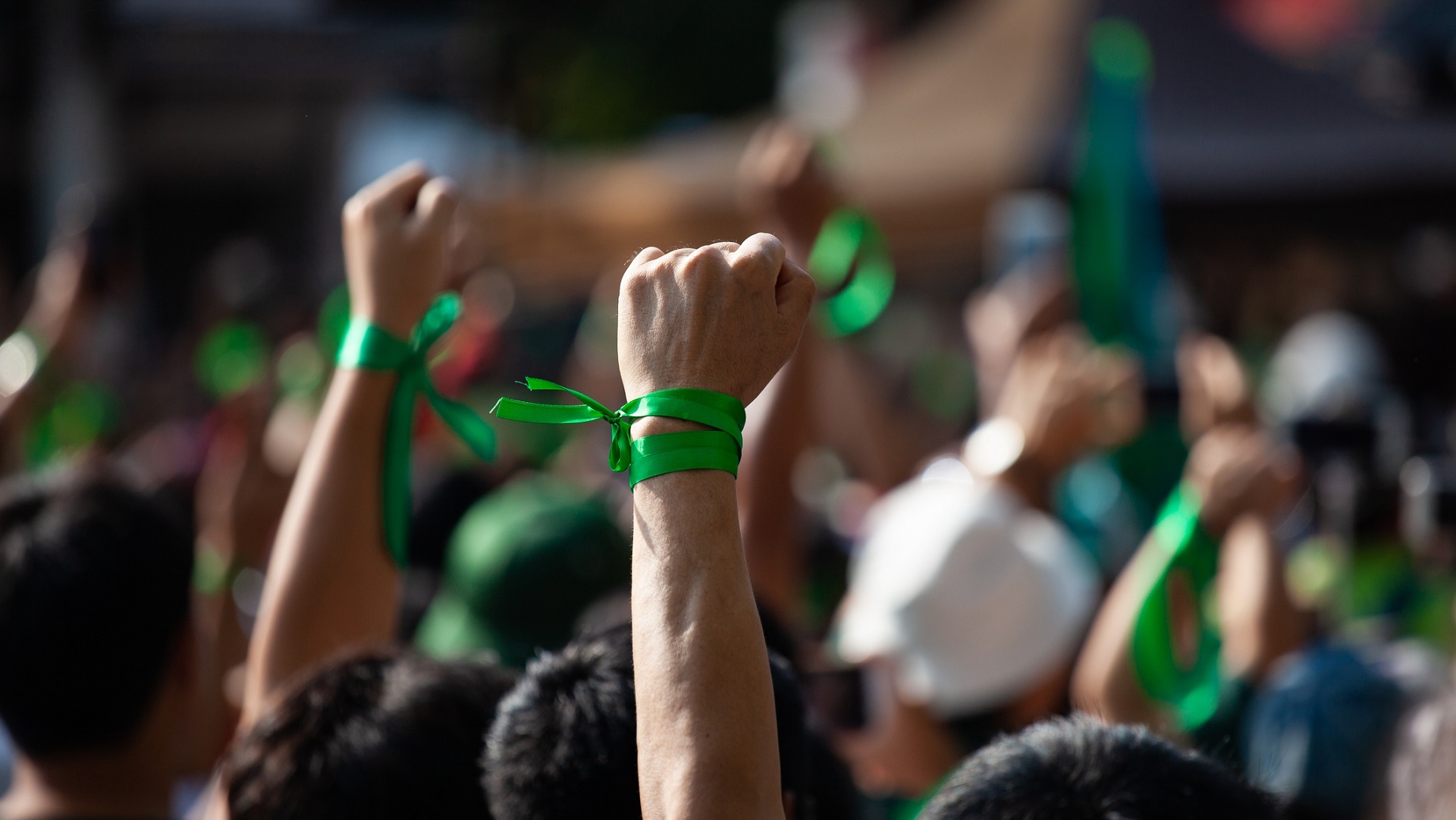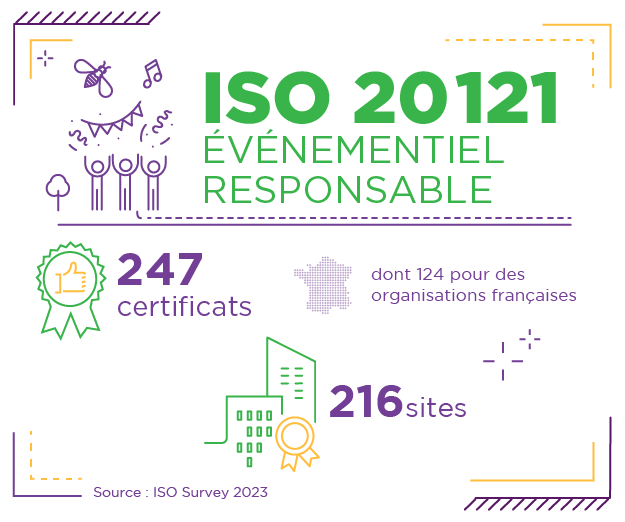The standard on sustainable event management gets a makeover

In France, it was used to certify the G7 in 2019 or the cultural activities of the town of Saint-Raphaël , in the Var region… The voluntary ISO 20121 standard provides instructions for organizing a responsible event, reviewing the three pillars of sustainable development: the economy, the environment and society.
It looks at water, waste, energy, transport, the use of the solidarity economy, and many other points.
With some limitations, which are due to its precursory nature: in 2012, when the standard was born on the premises of the British Standard Institute (BSI, the British equivalent of AFNOR) with the London Olympics in its sights, we were still a long way from the current awareness of environmental and climate challenges.
From London to Paris
If the standard was rather ahead of its time in 2012, it was time to revisit it in 2024, not least to avoid the trap of greenwashing.
Indeed, some events – local or global – have been able to claim compliance with this CSR tutorial, but only on the surface.
” In the space of twelve years, citizens’ expectations have increased to such an extent that the revision was essential “, sums up Pauline Teyssedre, president of the AFNOR standardization committee that coordinated the French work, and strategy director of the Galis agency, itself certified on the basis of the standard for eight years.
Expectations, but also practices: ” We had to develop this standard so that the event industry as a whole could organize itself properly,” adds Romain Riboud, from the Impact and Legacy Department of the Paris 2024 Olympic and Paralympic Games Organizing Committee, in this video . And to ensure that the text reflects the progress made by the professionals, by sharing it with as many people as possible “, particularly with regard to the notion of legacy [the local imprint that the event will leave once it’s over, editor’s note].
Interested by the global dimension of the project, and encouraged by the International Olympic Committee, Romain Riboud led, on behalf of Paris 2024, a working group federating 16 countries and a dozen international liaison structures under the aegis of the International Organization for Standardization (ISO).
The aim was then to implement the document for its major summer event.
” We have succeeded in making this standard both more ambitious in content and more flexible in form “, adds Romain Riboud.
Alongside him on the AFNOR commission are service providers, trade show organizers, venue operators, consultants… In all, 180 professionals, including those grouped together in the Union française des métiers de l’événement (Unimev).
Responsible purchasing, children’s rights and the SDGs
So, how does the 2024 version remedy the weaknesses of the previous version?
The text now requires organizations to draw up a sustainable development policy and implement an action plan, with objectives and indicators set in advance,” says Pauline Teyssedre, who also chairs Unimev’s CSR commission. We worked a lot on the notion of legacy: how to optimize what already exists, what remains of an event once it’s over. ” Other important new features include chapter 8, which deals with responsible purchasing (a subject covered in greater depth in the voluntary ISO 20400 standard), and appendix D, devoted to children’s rights.
We’ve chosen to work in four areas,” says Pauline Teyssedre . .
Le premier consiste à aligner la norme avec les Objectifs de développement durable (ODD) des Nations-Unies . Secondly, we have tightened up the requirements for evaluatingtheimpact.
Twelve years ago, the notion of impact was less tangible.
Carbon impact, financial impact, human impact, territorial impact… Today, the standard explicitly requires these exercises to be carried out. ”
A more robust foundation for certification
The third priority is to clarify the certification process for organizations that audit event organizers claiming to comply with the standard, such as AFNOR Certification at .
” We found that, fromone organization to another,there was a lack ofclarity in the certification process. from one person to another, the requirements were not the same.
So we reworked the definitions and produced a new appendix 100% dedicated to the assessment “says Pauline Teyssedre.
The bottom line is that an event that does not spontaneously evoke CSR should no longer be awarded certification, such as the hyper-climatized soccer World Cup in Qatar in 2022.
The standard lays down a common base of requirements, but it’s up to each individual to aim higher!
Some people think that the standard should set common objectives for everyone, but I don’t think so,” says Pauline Teyssedre. Otherwise, it would become elitist.
But it’s not a standard reserved for the best.
In 2024, the important thing is to get out there and get as many people on board as possible, young and old alike.
In France, there are many small and medium-sized businesses in the events sector.
It’s important that those who don’t have a full-time CSR manager can get on board and win bids. “The 2024 version of the standard features a bibliography that has tripled in size, as many new texts have appeared in the meantime, providing invaluable support. ” Our businesses have changed a lot since the covid-19 pandemic.
We need to present them correctly to young people and attract talent.
With this in mind, these standardization projects are a precious help for us. “concludes the president of the AFNOR commission.
In figures

A standard recognized in the field As of December 31, 2022, 247 ISO 20121 certificates had been issued worldwide, including 124 for French organizations, covering 216 sites. Source : ISO Survey 2023